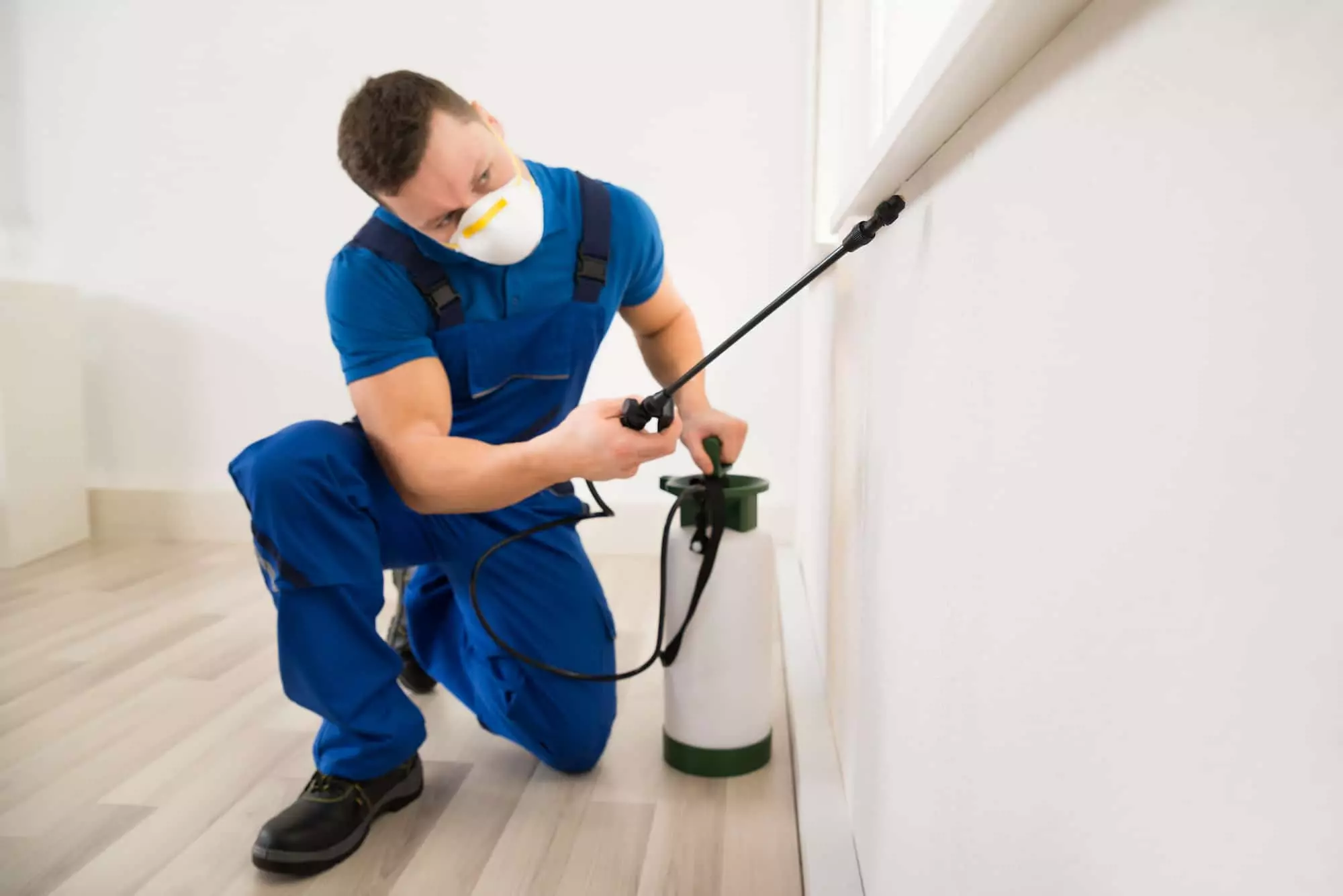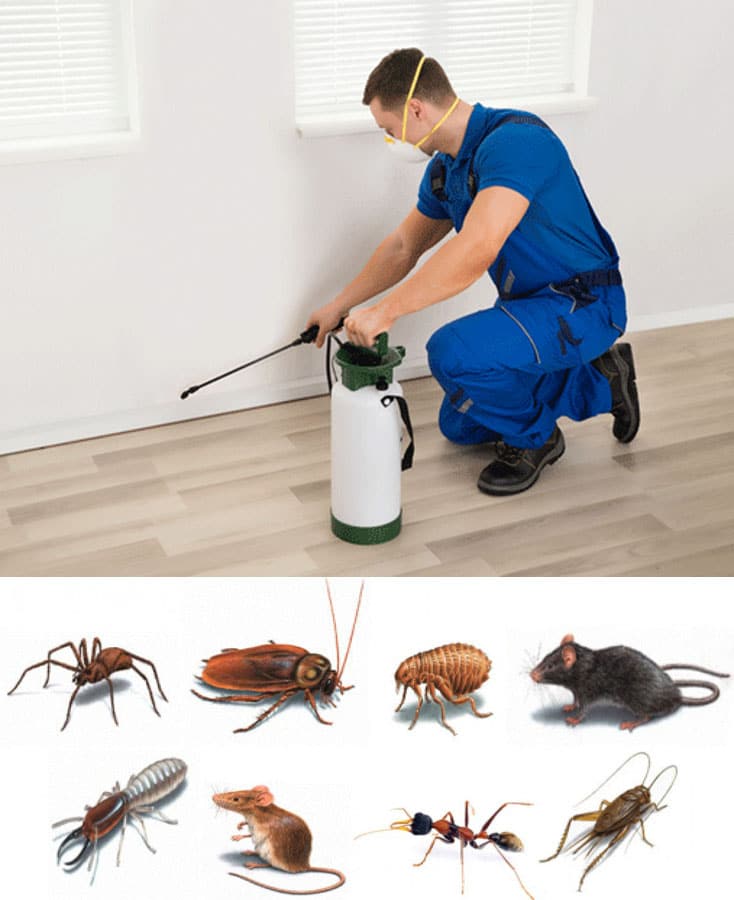Effective Pest Control Solutions: A Thorough Take A Look At Elimination Techniques and Avoidance Actions
In the realm of pest control services, the successful management of invasions needs a careful technique that incorporates numerous methods and procedures for both obliteration and avoidance. From Integrated Parasite Monitoring (IPM) strategies that focus on sustainable remedies to chemical extermination strategies developed for targeted elimination, the collection against pests is large and complex. Biological control methods and physical prevention measures supply alternative paths to efficiently combating unwanted burglars. Nevertheless, the secret to an extensive bug control strategy lies not just in the strategies themselves, however likewise in the meticulous specialist inspection procedures that precede and notify them. By understanding the intricacies of each technique and exactly how they interplay, one can absolutely comprehend the complexity and performance of contemporary insect control services.

Integrated Pest Management (IPM) Techniques
Integrated Pest Administration (IPM) Approaches encompass a detailed strategy to pest control that focuses on tracking, control, and avoidance techniques to properly take care of pest populations. By integrating different methods, IPM intends to lessen the influence of pests while also reducing the reliance on chemical pesticides. Prevention lies at the core of IPM, emphasizing methods like appropriate cleanliness, maintenance of health, and securing entrance factors to hinder parasites from infesting structures.
Chemical Elimination Strategies
Chemical elimination strategies are generally used in parasite control solutions to successfully get rid of parasite populaces that present a danger to human health and wellness and property. These strategies entail the usage of different chemical compounds particularly developed to target and eliminate parasites such as pests, rats, and other unwanted animals. The application of chemicals, insecticides, rodenticides, and other chemical representatives is meticulously controlled to guarantee maximum performance while lessening dangers to humans, pet dogs, and the setting.
One of the key benefits of chemical extermination techniques is their capacity to supply quick and targeted outcomes, making them specifically beneficial in situations of severe problems or urgent pest control demands - a1 pest control in portland oregon bed bugs. However, it is important to highlight the importance of correct handling, application, and disposal of these chemical products to stop unplanned harm
In addition, integrated bug management (IPM) strategies commonly integrate chemical elimination techniques with various other techniques such as sanitation, habitat alteration, and biological controls to produce a comprehensive and lasting parasite control technique. By integrating chemical elimination techniques carefully within an IPM structure, bug control solutions can effectively take care of insect populaces while decreasing potential dangers to human health and wellness and the setting.
Biological Insect Control Techniques
Using all-natural killers and parasites to manage insect populaces is a lasting approach referred to as biological insect control. This method takes advantage of the all-natural devices of the ecosystem to regulate insect populations without counting on artificial chemicals. One usual organic control approach entails presenting all-natural adversaries of the target insect types, such as ladybugs for aphid control or nematodes for termite invasions. These natural predators feed upon the insects, assisting to keep their populations in check.
An additional efficient biological control strategy is making use of microbial insecticides. These are naturally taking place bacteria, such as viruses, fungis, and bacteria, that especially target and contaminate certain parasite types. By utilizing these microbial representatives, pest populaces can be successfully reduced without causing or hurting advantageous microorganisms harm to the setting.
Physical Insect Avoidance Steps
Implementing physical pest avoidance steps involves utilizing barriers and structural alterations to deter parasites from getting in or infesting a residential or commercial property. Installing door moves, displays on windows, and sealing cracks in the structure can aid stop insects like insects and rats from obtaining gain access to inside your home.
One more physical prevention action is the usage of barriers like secure fencing to maintain larger pests such as deer or raccoons away from the residential property. Setting up mesh or wire displays around gardens can protect plants from being a1 commercial pest control portland harmed by insects. Correct waste administration, including safeguarding wastebasket with tight-fitting covers, is important in deterring bugs like raccoons, rodents, and pests. By carrying out these physical pest avoidance measures, building owners can dramatically decrease the threat of insect problems and the damage they can create.
Specialist Pest Inspection Procedures
Performing extensive and methodical bug evaluations is a fundamental element of professional bug administration procedures. Professional insect examiners are trained to thoroughly take a look at buildings for indicators of invasions, determining pest types, entry factors, and helpful problems. The evaluation process typically starts with a detailed evaluation of both the interior and outside of the properties. This includes checking for parasite droppings, chomp marks, nests, and any type of structural damages that might indicate parasite task. Additionally, inspectors might utilize specialized devices such as moisture meters and borescopes to detect surprise invasions within walls or crawl rooms.

Conclusion
Finally, efficient pest control solutions utilize a variety of strategies, including Integrated Pest Monitoring techniques, chemical extermination approaches, biological controls, and physical avoidance steps. Specialist bug inspection treatments play an essential duty in determining and addressing pest problems in a timely way. By implementing a mix of these methods, residential or commercial property proprietors can successfully handle and prevent parasite problems.
From Integrated Parasite Administration (IPM) strategies that prioritize lasting solutions to chemical extermination strategies designed for targeted elimination, the collection versus insects is diverse and substantial.Integrated Pest Administration (IPM) Methods encompass an extensive technique to pest control that focuses on prevention, surveillance, and control methods to successfully take care of parasite populations.Chemical extermination techniques are typically utilized in bug control solutions to properly get rid of pest populaces that posture a threat to human health and home.Utilizing all-natural predators and parasites to manage insect populations is a sustainable method known as organic parasite control.In verdict, reliable parasite control solutions utilize a range of techniques, including Integrated Pest Management approaches, chemical elimination techniques, biological controls, and physical prevention measures.